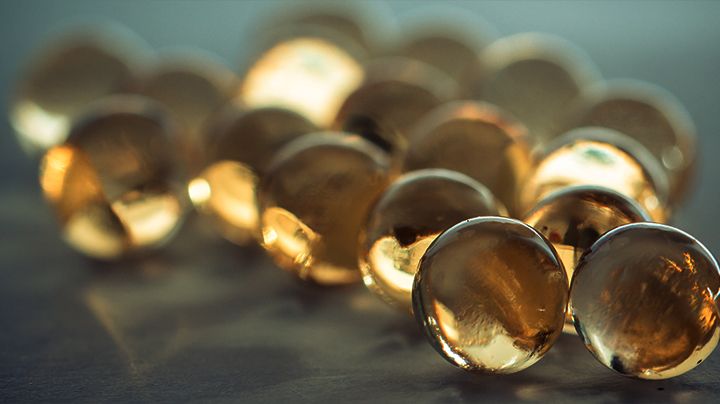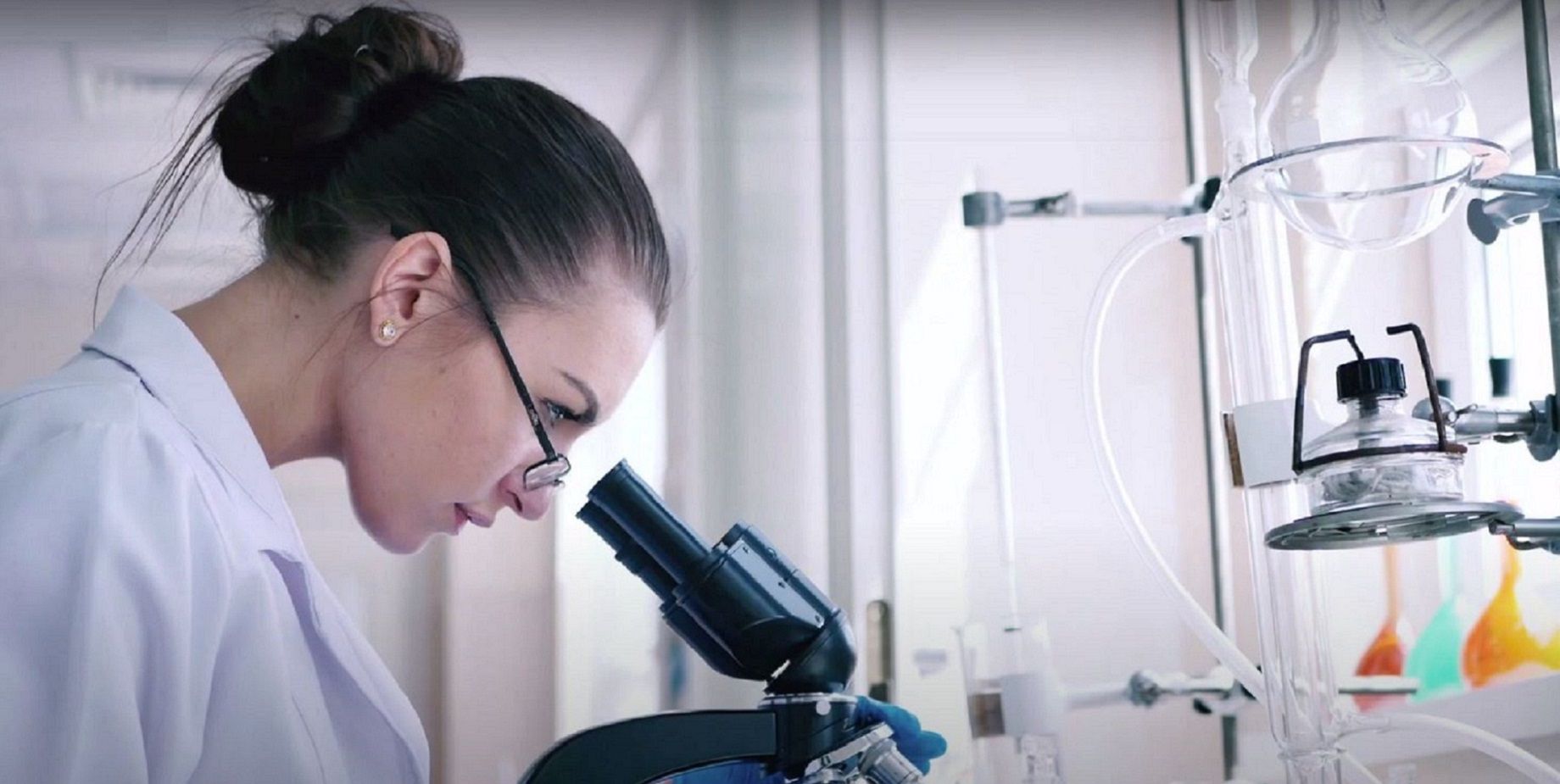Advancing drug manufacturing with sophisticated science-based solutions
Bioprocessing encompasses the research, development, and manufacturing of products prepared from biological systems such as complete living cells or their components. Polymeric adsorbents and ion exchange resins can accelerate and enhance the discovery and production of small molecule synthetics, oligonucleotides, and peptides, as well as diagnostics by enabling complicated separations that help companies achieve their vision to manage and treat diseases.
As a global market leader in adsorbents and ion exchange resins, DuPont Water Solutions offers a broad range of products specifically designed to be used in bioprocessing and drug synthesis, from advanced gene therapies to conventional small molecule APIs and virus test kits. With a wellness optimized world at our core our global research and development capabilities can enable the manufacturing of drugs now and in the future to help deliver solutions when and where they are needed resulting in better outcomes for patients and life science companies alike.
Bioprocessing subindustries
Increasing the productivity of peptides
Peptides are amino acid polymers that the body uses to facilitate cell-to-cell communication. They can be harnessed and used to trigger specific therapeutic effects. Peptides can be produced by chemical synthesis (solid-phase or solution) or by recombinant procedures. In both cases, polymeric adsorbents can be used in the capture and polishing steps.
Our adsorbents and ion exchange resins provide a definitive advantage in this process because they can withstand cleaning in place (CIP) and sanitization in place (SIP) processes. They are stable in any solvent, at any pH, and exhibit an outstanding mechanical stability. This enables certain types of compounds to be produced with much better productivity, economic viability, and decreased environmental impact.
Learn more about how we can help increase productivity of peptides.
Recovering and purifying natural extracts
Plants contain polyphenols, alkaloids, and other active molecules that are used in a large variety of health care and bioprocessing applications, ranging from antioxidants to chemotherapy medication. These molecules can be isolated, extracted, and purified effectively using our polymeric adsorbents and ion exchange resins.
Our solutions address:
- Alkaloids.
- Paclitaxel (Taxol).
- Anthocyanins.
- Flavonoids.
- Proanthocyanidins.
- Ellagitannins.
- Saponins.
- Chlorogenic acid.
- Stevia.
Learn more about how we can help recover and purify plant extracts.
Ensuring high-quality manufacturing of antibiotics
Used to prevent or treat bacterial infections, antibiotics are classified according to their chemical structure, mechanism of action, and spectrum activity. They are produced by either chemical synthesis or fermentation. Our ion exchange resins have been used at various steps in the antibiotic manufacturing process including for:
- Extraction.
- Capture and concentration.
- Decolorization and desalting.
- Final purification.
Our solutions help recover and purify biomolecules, such as:
- Cephalosporins.
- Vancomycin.
- Tobramycin.
- Streptomycin.
- Oritavancin.
- Erythromycin.
- Geldanamycin.
Learn more about how our solutions help process antibiotics.
Achieving optimal purity of oligonucleotides
Oligonucleotides are DNA or RNA polymers effective in a variety of molecular diagnostics and forensics uses, including gene therapeutic drugs and probes for detecting DNA or RNA. Oligonucleotides can be manufactured by chemical or enzymatic synthesis.
Our anion ion exchange resins are the optimal media for the purification of oligonucleotides because they allow a better resolution during the process, leading to higher purity levels.
Learn more about how we can help purify oligonucleotides.
Improving the effectiveness of diagnostic procedures
Some medical procedures, including antibiotic removal devices (ARD) and the use of radiocontrast agents for imaging, require adsorbents and ion exchange resins for either manufacturing or effectiveness. An ARD removes residual antibiotics from the blood prior to conducting a bacteria culture test, a procedure done during the treatment of serious infections, such as sepsis.
Radio-contrast agents, such as iodine, barium sulfate, and gadolidium-based compounds, enhance the visibility of internal structures in X-ray-based imaging. The production of iodine agents involves a multistep chemical synthesis and an exhaustive purification process that uses ion exchange resins.
Our Amber series of products work very effectively in both of these applications. Learn more about how our solutions can support medical diagnostics.
-
Peptides
Increasing the productivity of peptides
Peptides are amino acid polymers that the body uses to facilitate cell-to-cell communication. They can be harnessed and used to trigger specific therapeutic effects. Peptides can be produced by chemical synthesis (solid-phase or solution) or by recombinant procedures. In both cases, polymeric adsorbents can be used in the capture and polishing steps.
Our adsorbents and ion exchange resins provide a definitive advantage in this process because they can withstand cleaning in place (CIP) and sanitization in place (SIP) processes. They are stable in any solvent, at any pH, and exhibit an outstanding mechanical stability. This enables certain types of compounds to be produced with much better productivity, economic viability, and decreased environmental impact.
Learn more about how we can help increase productivity of peptides.
-
Plant Extracts
Recovering and purifying natural extracts
Plants contain polyphenols, alkaloids, and other active molecules that are used in a large variety of health care and bioprocessing applications, ranging from antioxidants to chemotherapy medication. These molecules can be isolated, extracted, and purified effectively using our polymeric adsorbents and ion exchange resins.Our solutions address:
- Alkaloids.
- Paclitaxel (Taxol).
- Anthocyanins.
- Flavonoids.
- Proanthocyanidins.
- Ellagitannins.
- Saponins.
- Chlorogenic acid.
- Stevia.
Learn more about how we can help recover and purify plant extracts.
-
Antibiotics
Ensuring high-quality manufacturing of antibiotics
Used to prevent or treat bacterial infections, antibiotics are classified according to their chemical structure, mechanism of action, and spectrum activity. They are produced by either chemical synthesis or fermentation. Our ion exchange resins have been used at various steps in the antibiotic manufacturing process including for:
- Extraction.
- Capture and concentration.
- Decolorization and desalting.
- Final purification.
Our solutions help recover and purify biomolecules, such as:
- Cephalosporins.
- Vancomycin.
- Tobramycin.
- Streptomycin.
- Oritavancin.
- Erythromycin.
- Geldanamycin.
Learn more about how our solutions help process antibiotics. -
Oligonucleotides
Achieving optimal purity of oligonucleotides
Oligonucleotides are DNA or RNA polymers effective in a variety of molecular diagnostics and forensics uses, including gene therapeutic drugs and probes for detecting DNA or RNA. Oligonucleotides can be manufactured by chemical or enzymatic synthesis.
Our anion ion exchange resins are the optimal media for the purification of oligonucleotides because they allow a better resolution during the process, leading to higher purity levels.
Learn more about how we can help purify oligonucleotides. -
Diagnostics
Improving the effectiveness of diagnostic procedures
Some medical procedures, including antibiotic removal devices (ARD) and the use of radiocontrast agents for imaging, require adsorbents and ion exchange resins for either manufacturing or effectiveness. An ARD removes residual antibiotics from the blood prior to conducting a bacteria culture test, a procedure done during the treatment of serious infections, such as sepsis.
Radio-contrast agents, such as iodine, barium sulfate, and gadolidium-based compounds, enhance the visibility of internal structures in X-ray-based imaging. The production of iodine agents involves a multistep chemical synthesis and an exhaustive purification process that uses ion exchange resins.
Our Amber series of products work very effectively in both of these applications. Learn more about how our solutions can support medical diagnostics.
Find products for the bioprocessing industry
View a list of products suitable for bioprocessing of peptides, plant extracts, antibiotics, oligonucleotides, and diagnostics.
Related technologies
Our technologies provide industry-leading, long-lasting, and cost-effective solutions. Learn more about the technologies relevant to the bioprocessing industry.

IX uses polymeric resins capable of exchanging ions; applications include softening, bulk demineralization, trace contaminants removal, and condensate water polishing.
Related resources
See what’s possible
Ask how our advanced technologies can bring quality and efficacy to the bioprocessing industry.
